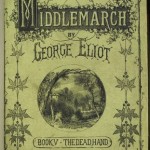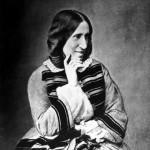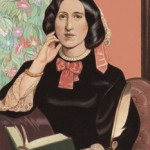Being Dorothea
George Eliot is superb in creating characters who are individuals and yet represent types of people. I have known so many of her residents of Middlemarch and yet it is Dorothea I know intimately. I am Dorothea.
I don’t remember my first reading of Middlemarch– probably in college at the Mississippi University for Women. I read Middlemarch at least a second time sometime within the last 8 years, also at MUW, when I audited a class in Victorian literature. And I read it a third time more recently. Perhaps the appeal is in looking back over my life (I begin my 80th year in August) and seeing how exactly Eliot, through Dorothea, explains my life.
Like Dorothea, I always wanted to “do something”, something grand, perhaps, that made a difference in people’s lives. The religious draw appealed to me, as it appealed to Dorothea. Some of us at nineteen want more than anything to give ourselves away. We want to make a difference in the world. We want our lives to mean something – not because we want to be famous or rich, but because we hunger for righteousness. We want to be good and do good. We want to know God. Surely most young people, particularly thinking persons, have such visions of their life ahead.
What we don’t want is to be conventional, to be like Celia and marry a Sir James as society expects, or, heaven forbid, a Rosamond. Instead we idealize another sort of life wherein we can be of service, wherein we can learn and grow and live the questions, wherein our life matters. And so, we make mistakes. Our very thirst, our idealism, causes us pain, disappointment, disillusion.
All the characters are marvelously drawn. And I have known them all – by different names, of course. I suspect were we to construct a typology of relationships, we would find at their roots most of them here. Though the customs and culture are different, people are the same. All the relationships are familiar to me. Rosamonds have been my friend. I have shaken my head and sighed over Lydgates. The Casaubons of this world are not who we imagine. Nor is life. Most of us are not special. We do not make some great change in the world. Being Dorothea, if we are fortunate, we realize that ordinary life is enough, and at 79, somehow we have become the sort of woman we wanted to be.
Linda Ford Campany is a former Zen Buddhist monk who holds a PhD in Human and Organization Development. She is a native of Mississippi and 25-year resident of Abingdon, Virginia, currently living in Vermont.



